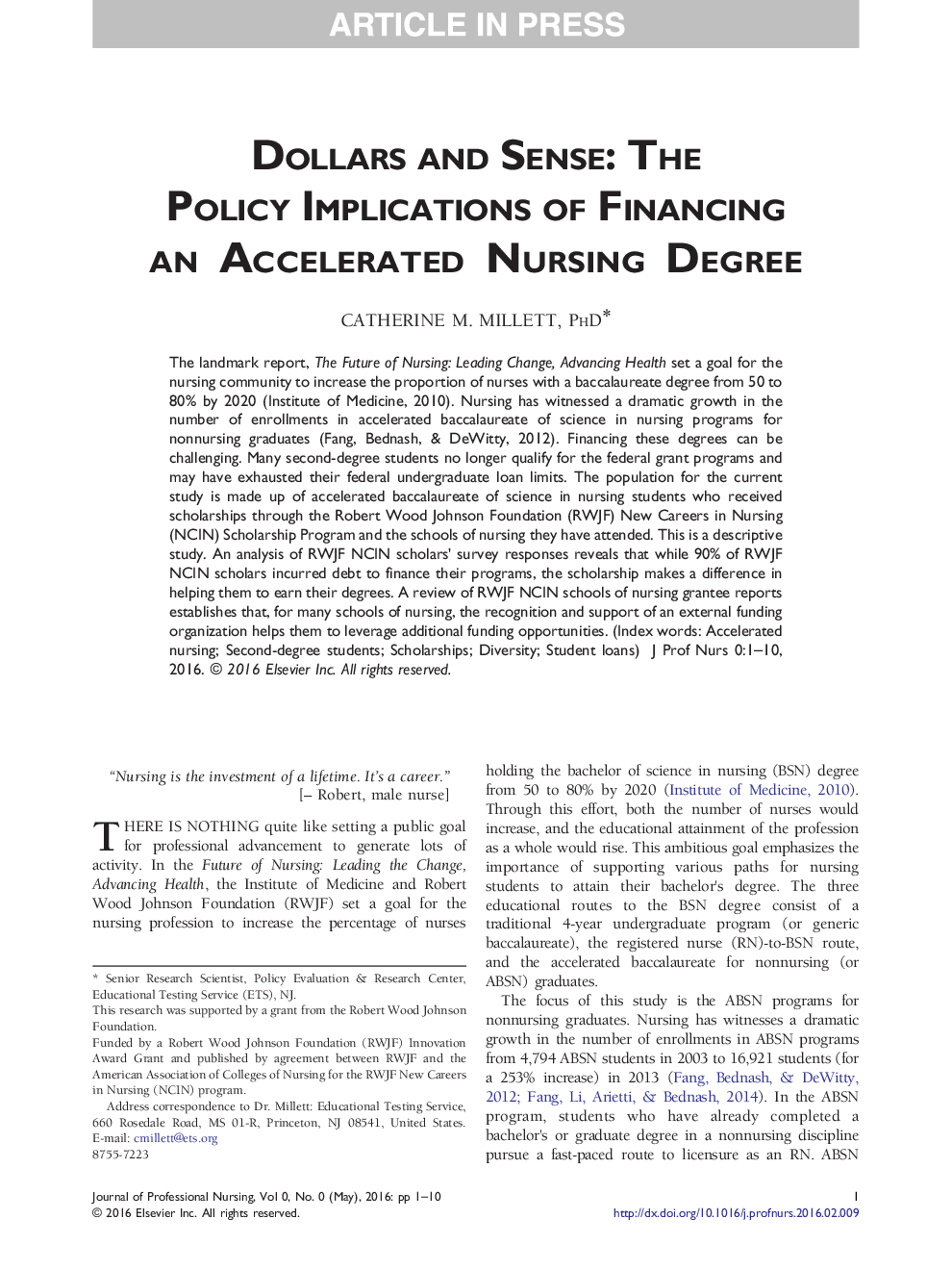| Article ID | Journal | Published Year | Pages | File Type |
|---|---|---|---|---|
| 5570486 | Journal of Professional Nursing | 2016 | 10 Pages |
Abstract
The landmark report, The Future of Nursing: Leading Change, Advancing Health set a goal for the nursing community to increase the proportion of nurses with a baccalaureate degree from 50 to 80% by 2020 (Institute of Medicine, 2010). Nursing has witnessed a dramatic growth in the number of enrollments in accelerated baccalaureate of science in nursing programs for nonnursing graduates (Fang, Bednash, & DeWitty, 2012). Financing these degrees can be challenging. Many second-degree students no longer qualify for the federal grant programs and may have exhausted their federal undergraduate loan limits. The population for the current study is made up of accelerated baccalaureate of science in nursing students who received scholarships through the Robert Wood Johnson Foundation (RWJF) New Careers in Nursing (NCIN) Scholarship Program and the schools of nursing they have attended. This is a descriptive study. An analysis of RWJF NCIN scholars' survey responses reveals that while 90% of RWJF NCIN scholars incurred debt to finance their programs, the scholarship makes a difference in helping them to earn their degrees. A review of RWJF NCIN schools of nursing grantee reports establishes that, for many schools of nursing, the recognition and support of an external funding organization helps them to leverage additional funding opportunities.
Keywords
Related Topics
Health Sciences
Nursing and Health Professions
Nursing
Authors
Catherine M. PhD,
